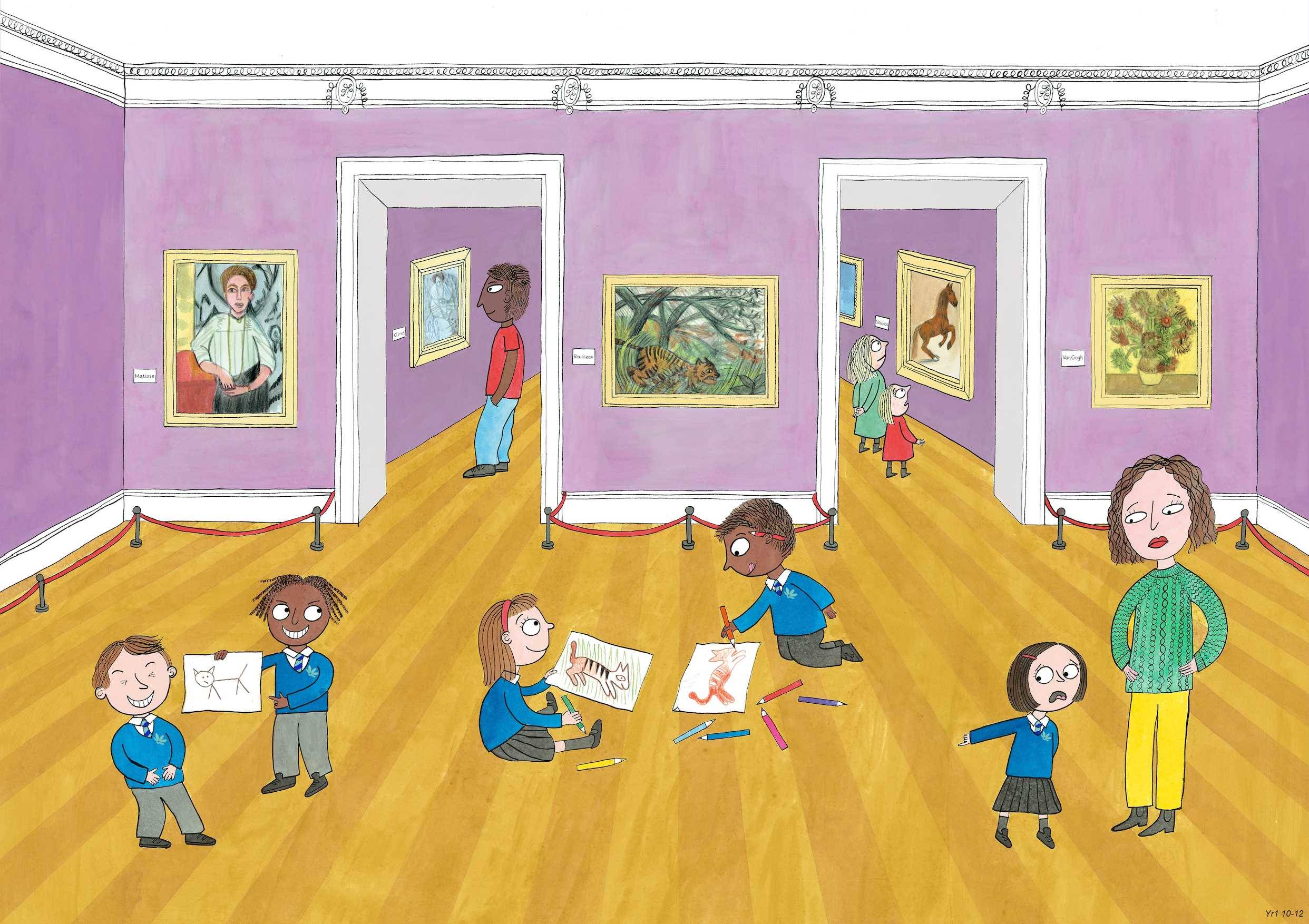Honesty
Year 1: It is always best to admit if I have done the wrong thing.
Core Story:
George Washington and the Cherry Tree Myth, written for Floreat (see Y1 Honesty) George’s father cherishes his cherry tree and looks forward to baking the fruits into a pie. When George is playing in the tree he decides to taste one of the cherries – and before he stops to think – he has eaten every last one! George tries to hide the stones, and when his father asks what happened to the fruit George admits his mistake, terrified of what his father’s reaction will be. Instead of getting cross, his father is proud of him for admitting that he’d done something wrong and telling the truth.

Drawing out the virtues:
The ‘pause’ icon on the slide where George is called by his father indicates that teachers should pause the story at this point to have a discussion with pupils. George has to make a decision - what does he have to decide? Whether or not to tell the truth. What are the reasons for owning up? It is honest. His father might find out anyway and be angrier.
He really didn’t mean to do it. What are the reasons for pretending it wasn’t him? He feels ashamed, he doesn’t want his father to be cross with him. What would be the best thing to do here? After this discussion tell the story until the next pause button. Ask pupils to predict what the father is going to say.
Activity Activity 1: Speech bubbles
Show pupils the slides which show the part in the story when George admits he has done the wrong thing. Ask pupils to practice with a Perfect Partner exactly what they would say if they were George. Once pupils have had an opportunity to practise this in pairs, go through it as a class and decide on a final sentence that should be written into the speech bubble.
Encourage sentences like: I admit I have made a mistake. I am sorry I made a bad choice. I am really sorry, I have done the wrong thing.
Now show pupils the slide where George’s father replies. Ask pupils to practise what they might say if someone admitted doing something wrong like George did, and go through the same process.
Activity 2: Honesty scenarios
Set up a hot-seat at the front of the class. You could use two different masks as props. Choose a pupil to sit in the hot-seat between two other pupil volunteers, an honest character and a dishonest character. The children wearing the honest and dishonest masks should stand either side of the child in the hot-seat. Explain the following scenarios and open each discussion to the whole class. Discuss what the consequences of either course of action might be, and focus on the language and sentences you could use to own up. The pupil in the hot-seat must decide on what they are going to say and do, and model their sentence to the rest of the class.
You’ve spilt your drink on the carpet, even though mum already told you not to leave your drink on the floor. When your mum sees is she says ‘Did you spill this?’
You took your brother’s scarf then left it somewhere. Your brother gets cross when he can’t find it anywhere. What will you do?
You and your friend are building a big tower together. Your friend has gone to get something and the teacher comes over and says ‘well done, you’ve built such a tall tower all by yourself’. What will you do?
You knock a pot of paint over someone else’s painting, but no one saw you. What will you do?
Your dad takes you to the fun fair for your seventh birthday and promised that you can choose any 5 rides. But as you approach the gate, he discovers that he’s forgotten his wallet. This is the last day of the carnival and it’s too far to go home and come back before it closes. Dad counts the change in his pockets and tells you he has enough money to pay the entrance fee so you can go inside and look at all the stands, but there wouldn’t be any money for rides, OR you could lie about your age and say you’re five and get in for half-price, which would leave enough money for the 5 rides. You walk to the gate and the ticket seller asks your, “How old are you?” What will you do?
|
Classroom language
|
Sayings
|
|
Thank you for telling me the truth.
How could you use honesty next time this happens?
|
Honesty is the best policy.
You’re only as good as your word.
|
Library books
Ruthie and the (Not So) Teeny Lie by Laura Rankin
The Whopper by Rebecca Ashdown
On the Way Home by Jill Murphy
The Wolf’s Story by Toby Forward
Pinocchio
The Pied Piper of Hamelin
Not me by Nicola Killen
The Worry Monster by Caroline Uff